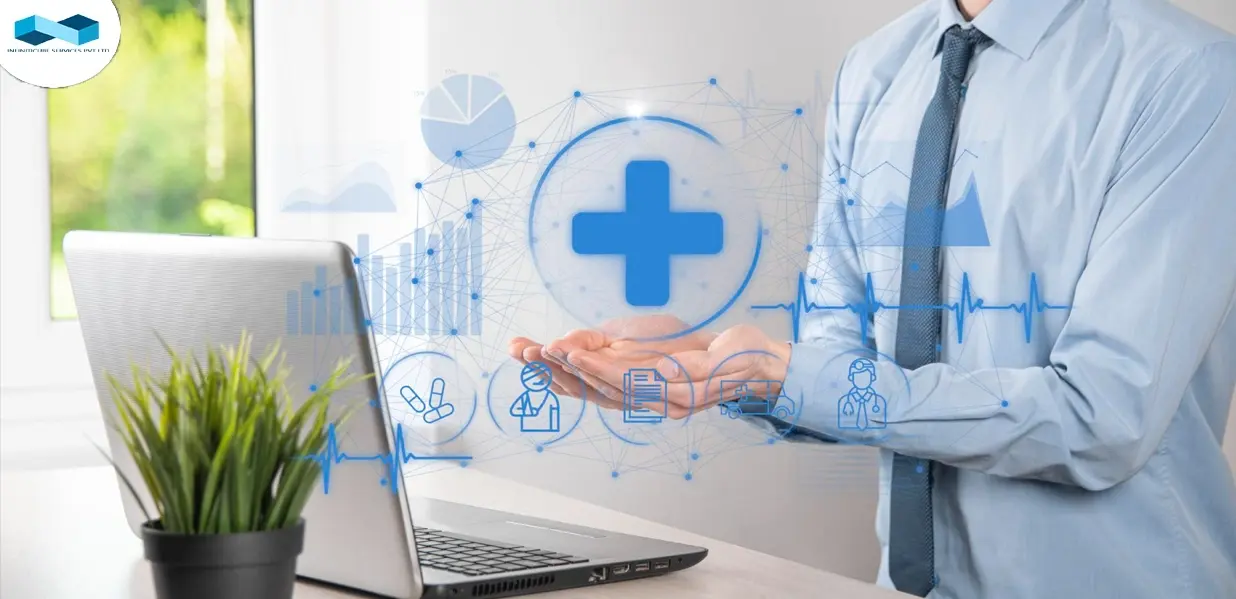11 Amazing Ways to Use mHealth for Next-Level Preventive Care
Introduction
mHealth is transforming healthcare through mobile technologies, empowering individuals to manage health proactively. Its vital role in preventive care enhances well-being by preventing health issues. This guide explores how mHealth revolutionizes healthcare delivery by promoting healthier lifestyles.
1. Health Monitoring
Using mHealth apps for real-time health monitoring
- One significant advancement in healthcare technology is the use of mHealth apps for real-time health monitoring.
- Convenient way for individuals to track their health metrics such as heart rate, blood pressure, and physical activity levels at any time and from anywhere.
- Enables healthcare providers to remotely track patient data, offering a more comprehensive and timely insight into the individual’s health status.
- Healthcare professionals can make informed decisions on treatment plans, adjust medications, or intervene promptly when necessary.
- Enhances the efficiency of healthcare delivery by reducing unnecessary clinic visits or hospital admissions.
Examples: Tracking blood sugar levels, sharing data with healthcare providers
Health monitoring has advanced with mHealth technology, allowing easy tracking of vital signs and well-being.
- One fundamental benefit of mHealth apps is their capability to track vital health metrics such as blood sugar levels.
- Users can monitor fluctuations in their blood sugar levels over time.
- mHealth apps facilitate seamless communication between users and healthcare providers by enabling data sharing functionalities.
- Through secure platforms, users can easily share their health data, including blood sugar levels, with their healthcare team.
- Streamlined communication ensures that healthcare providers have access to accurate and up-to-date information, allowing for more informed decision-making and personalized care plans.
- From monitoring heart rate and blood pressure to tracking physical activity and sleep patterns, these apps provide users with comprehensive insights into their overall health and well-being.
2. Patient Management
Remote patient monitoring facilitated by mHealth technologies
- Remote patient monitoring with mHealth tech allows tracking outside clinical settings
- Wearables and apps collect real-time data for comprehensive health view
- Enhances care quality, improves outcomes by proactive monitoring and early detection
- Patients benefit from managing health at home, staying connected with providers
- Evolving mHealth offers innovative solutions for personalized care and patient empowerment
Example: Tracking vital signs of heart disease patients.
3. Medication Adherence
Utilizing mHealth apps for medication reminders
- Medication adherence is essential for managing chronic conditions and treatment effectiveness
- Mobile health (mHealth) apps offer personalized reminders for medication schedules
- Apps track doses taken and missed, providing insights for healthcare providers
- Technology empowers individuals to control their health and adhere to treatment plans
- mHealth apps are valuable resources for promoting better health outcomes through improved adherence
Example: Managing complex medication regimens efficiently.
4. Enhanced Communication
Improving doctor-patient communication through mHealth platforms
- mHealth platforms enhance doctor-patient communication with secure messaging, video consultations, and real-time monitoring.
- Increased interactions foster stronger connections and patient engagement in their care.
- Platforms provide easy access to health information, empowering informed decision-making by patients.
- Personalized recommendations, progress tracking, and reminders improve patient outcomes and satisfaction with healthcare.
Example: Enabling messaging and video consultations.
5. Access to Health Information
Providing reliable health information to patients via mHealth apps
- mHealth apps provide instant access to medical information
- Users can find details on conditions, medications, and treatments
- Personalized recommendations empower individuals to manage their health
- Convenient access promotes adherence to treatment plans
- Integration of mHealth apps improves access to reliable health information
Example: Accessing information on healthy pregnancy practices.
6. Access to Medical Research
Enabling healthcare providers to access recent medical research
- Access to medical research enhances healthcare practices and patient outcomes
- Technology facilitates easier access to up-to-date research for informed decision-making
- Improved accessibility leads to personalized care with latest treatment options and guidelines
- Broad access to research keeps healthcare professionals knowledgeable and at the forefront
- Continuous exposure to new information fosters learning culture and skill improvement among clinicians
Example: Diagnosing and treating rare diseases using mHealth apps.
7. Remote Patient Monitoring (RPM)
Leveraging mHealth systems for remote patient monitoring
- Remote Patient Monitoring (RPM) uses mHealth systems for monitoring patients outside medical settings.
- RPM enables tracking vital signs, medication adherence, and health metrics remotely.
- Real-time data transmission enhances proactive care and early intervention for chronic conditions.
- RPM improves patient outcomes through continuous monitoring and personalized interventions.
- It helps manage chronic illnesses like diabetes, hypertension, and heart disease effectively.
- RPM reduces hospital readmissions and healthcare costs with proactive monitoring.
- Predictive analytics and AI enhance early detection and personalized care strategies in RPM.
Example: Tracking health parameters like heart rate and blood pressure.
8. Health Education
Improving health literacy through mHealth apps
- Health education is key for better health literacy
- mHealth apps offer easy access to health resources
- Apps provide personalized health content and interactive features
- Users can engage with quizzes, trackers, and reminders for better health outcomes
- Encourages ongoing learning and behavior change for long-term wellness
Example: Providing comprehensive health information and advice.
9. Disease Surveillance
Utilizing mHealth technologies for disease tracking and management
- Disease surveillance evolving with mobile health tech
- Real-time data collection improves tracking accuracy and speed
- mHealth aids in efficient outbreak monitoring for rapid response
- Benefits include reaching remote populations and comprehensive monitoring
- Mobile apps offer education on disease prevention, empowering individuals to protect their health
Example: Managing disease outbreaks and epidemics effectively.
10. Medication Management
Enhancing medication adherence with mHealth apps
- Medication management is crucial in healthcare, often misunderstood
- Mobile health (mHealth) apps revolutionize medication adherence tracking
- Features include reminders, refill alerts, tracking systems
- Personalized notifications based on schedules and preferences improve compliance
- Apps offer educational resources and medication information for informed decisions
- Integration of mHealth apps simplifies medication adherence and creates accountability
- Technology in medication management through mHealth apps enhances patient care and health outcomes
Example: Using apps for reminders and tracking intake.
11. Mental Health Support
Offering mental health resources through mobile health technologies
- Mobile health tech revolutionizes mental health support
- Provides accessible therapy, mindfulness, and self-help tools
- Democratizes mental health support through apps
- Collects data to personalize interventions and track progress
- AI enhances user experience with tailored recommendations
- Innovative solutions offer hope for improved mental well-being
Example: Providing therapy sessions and stress management techniques.
Conclusion
Advancements in technology offer extensive potential for preventive care through mHealth tools like remote monitoring and AI. These tools empower individuals to manage their health and enable targeted care delivery.
Integration of AI enhances predictive analytics for early disease detection, aiding healthcare professionals in identifying risk factors and intervening proactively. The future of preventive care hinges on leveraging mHealth capabilities for improved health outcomes and overall well-being.
Mobile health (mHealth) transforms patient-doctor interactions via technology, empowering patients and improving access to care. Bridging geographical barriers, mHealth fosters collaborative relationships and personalized treatment plans, leading to better patient outcomes. The evolution of mHealth technologies reshapes healthcare delivery positively.
Ready to revolutionize healthcare with mHealth?
Explore our cutting-edge solutions and transform patient care. Don't wait for the future – it's already here. Contact us today and take your healthcare to the next level!



